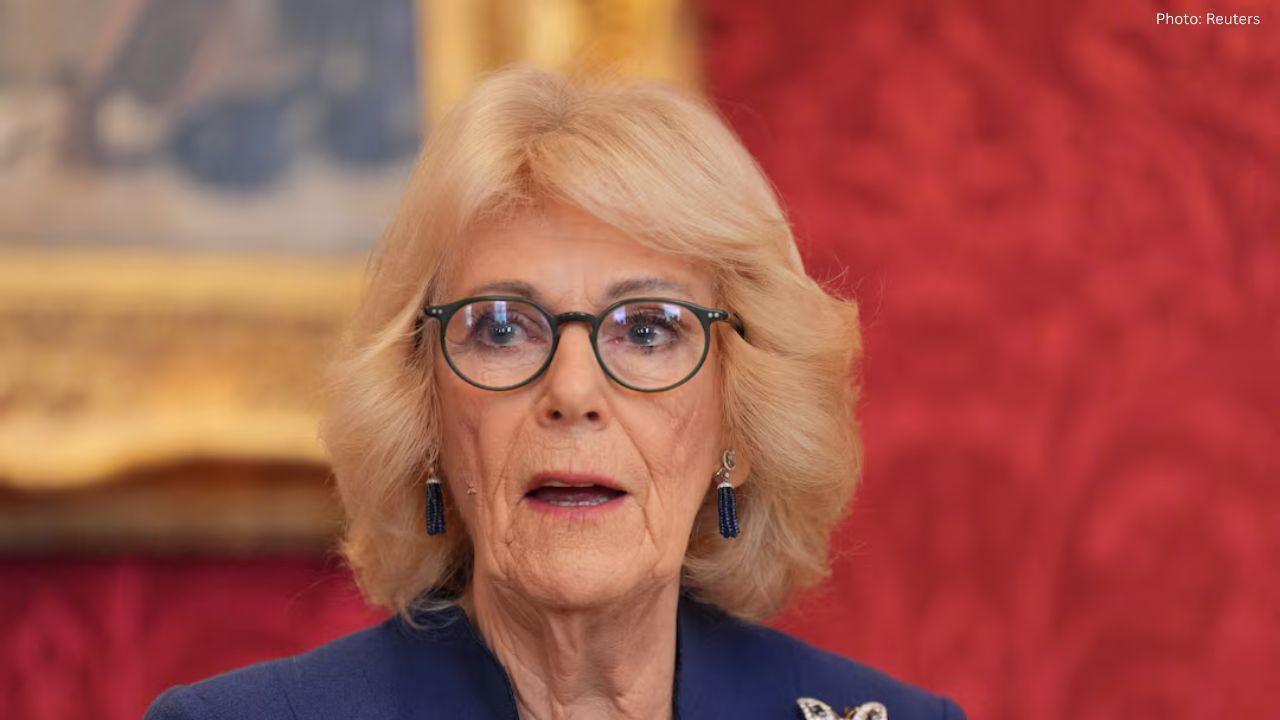You have not yet added any article to your bookmarks!

Join 10k+ people to get notified about new posts, news and tips.
Do not worry we don't spam!

Post by : Anis Farhan
Japan and South Korea have long been recognized as two of Asia’s most dynamic economies. Both countries, despite differences in scale and structure, have built resilient capital markets that attract investors from across the globe. Over the years, Tokyo and Seoul have competed not only regionally but also globally to establish themselves as trusted financial hubs. Now, in 2025, as global markets face turbulence from inflationary pressures, geopolitical realignments, and rapid technological change, the strategies of Japan and Korea are drawing fresh attention.
The landscape of capital markets in both nations is undergoing meaningful transformation. From regulatory reforms aimed at transparency and corporate governance to initiatives that attract foreign investment, Japan and South Korea are actively reshaping their financial sectors. At the same time, shifts in investor sentiment are revealing where confidence lies, and how global investors perceive these economies as safe or risky bets. Beyond that, their positioning on the world stage is influencing how Asia balances against dominant hubs like New York, London, and Hong Kong.
Japan’s capital market reforms have been a gradual but consistent process. The Tokyo Stock Exchange (TSE), one of the world’s largest equity markets, has undergone restructuring to improve efficiency and accountability. A major focus has been on enhancing corporate governance. Japanese companies have historically been criticized for opaque practices, insider networks, and sluggish responses to shareholder demands.
In recent years, Tokyo has introduced tougher rules requiring companies to appoint independent board members, improve disclosure of earnings, and maintain transparency in their financial structures. The government has also pressed for better capital efficiency, urging firms to move away from excessive cash hoarding and instead reward shareholders through dividends or stock buybacks.
Another reform concerns the shift toward sustainable finance. Japan has taken steps to promote green bonds and ESG-focused investment frameworks. By encouraging companies to meet environmental and social standards, Tokyo aims to attract investors seeking ethical and sustainable opportunities.
South Korea’s capital markets, though smaller in size compared to Japan, have seen aggressive modernization efforts. The Korea Exchange (KRX) has sought to diversify financial products, encourage fintech-driven solutions, and integrate more closely with global investors.
One of Seoul’s biggest initiatives has been improving accessibility for foreign investors. Language barriers, complex regulations, and restrictions on foreign ownership once discouraged overseas participation. Today, simplified registration processes, better transparency, and reduced barriers have made Korean markets more approachable.
Korea has also embraced technology-driven trading, becoming a leader in digital financial platforms. From AI-powered stock analysis to blockchain-based financial services, Korea is positioning itself as a future-ready market. The government is also focusing on protecting small investors, ensuring that retail participation grows without being overshadowed by institutional dominance.
Investor sentiment toward Japan and Korea is shaped by both economic fundamentals and geopolitical dynamics.
In Japan, investors value stability. The yen is often seen as a safe-haven currency, particularly during global market volatility. Japan’s bond market remains one of the deepest and most liquid globally, providing security to long-term investors. However, concerns linger over Japan’s aging population and slow domestic consumption, which could limit growth prospects. Yet, with ongoing reforms and corporate governance improvements, international investors are gradually warming to Tokyo’s equity markets.
South Korea, on the other hand, is viewed as more dynamic but riskier. Its heavy reliance on technology exports, particularly semiconductors, ties its financial markets closely to global demand cycles. When the tech industry booms, Seoul’s markets soar; when demand slumps, volatility spikes. Despite this, Korea’s innovation-driven economy appeals to investors seeking high-growth opportunities. Its relatively young population and strong digital infrastructure add to its attractiveness.
On the global stage, both Japan and South Korea aim to strengthen their influence.
Tokyo has long sought to rival Hong Kong and Singapore as Asia’s premier financial hub. While it remains a global leader in bond and equity markets, the perception of heavy bureaucracy and conservative corporate culture has limited its appeal to some investors. However, by promoting reforms and sustainability, Tokyo is rebranding itself as a forward-looking hub that can cater to modern global demands.
Seoul, meanwhile, has ambitions of becoming a financial innovation center. While it cannot yet rival Tokyo in scale, Korea’s push into fintech, green finance, and digital securities gives it a competitive edge in emerging sectors. If Seoul continues to attract foreign participation and enhances its reputation for transparency, it could carve out a strong niche.
Both nations are also strengthening ties with global partners. Japan has positioned itself as a key financial ally of the United States and Europe, while Korea is seeking to expand its reach in Southeast Asia and emerging markets. Together, their influence strengthens Asia’s role in shaping the future of global finance.
Despite progress, several challenges remain.
For Japan, its demographic crisis is the most pressing issue. With a rapidly aging society and shrinking workforce, long-term economic growth could be constrained. This demographic imbalance also affects investor sentiment, as questions arise over consumption, labor productivity, and innovation capacity.
Korea faces a different challenge: market volatility. Its deep dependence on technology exports exposes it to external shocks. Moreover, geopolitical risks, such as tensions with North Korea or trade disputes with China and the United States, can quickly unsettle investor confidence.
Both nations must also navigate global issues such as inflation, interest rate fluctuations, and the shifting tides of foreign capital. As investors look for safe yet rewarding opportunities, Japan and Korea must find ways to remain competitive and appealing.
Looking ahead, Japan and South Korea are likely to pursue complementary strategies rather than direct competition.
Japan will continue to focus on stability, corporate reform, and sustainable finance, ensuring that it remains a dependable hub for conservative and long-term investors. Korea will push innovation, accessibility, and high-growth financial products, catering to investors seeking more dynamic returns.
Together, they represent two sides of Asia’s financial coin: security and innovation. By balancing these approaches, both countries can strengthen their global positions while contributing to the overall resilience of Asian capital markets.
Japan and South Korea are not just regional players—they are global financial influencers. Their reforms, investor sentiment, and strategies for positioning themselves in the world economy will determine how Asia’s capital markets evolve in the coming decades.
In many ways, the two nations complement each other. Japan offers the assurance of stability, while Korea brings the promise of innovation. For investors, this duality is not just an opportunity but a reason to view Asia as a balanced and diversified investment destination.
As global uncertainty grows, the ability of Tokyo and Seoul to navigate reforms, strengthen transparency, and attract foreign participation will ultimately define their legacies in global finance.
This article is for informational purposes only and does not constitute financial or investment advice. Readers are encouraged to conduct their own research or consult financial professionals before making investment decisions.










Hong Kong Welcomes 2026 Without Fireworks After Deadly Fire
Hong Kong rang in 2026 without fireworks for the first time in years, choosing light shows and music

Ranveer Singh’s Dhurandhar Hits ₹1000 Cr Despite Gulf Ban Loss
Dhurandhar crosses ₹1000 crore globally but loses $10M as Gulf nations ban the film. Fans in holiday

China Claims India-Pakistan Peace Role Amid India’s Firm Denial
China claims to have mediated peace between India and Pakistan, but India rejects third-party involv

Mel Gibson and Rosalind Ross Split After Nearly a Decade Together
Mel Gibson and Rosalind Ross confirm split after nearly a year. They will continue co-parenting thei

Rashmika Mandanna, Vijay Deverakonda Set to Marry on Feb 26
Rashmika Mandanna and Vijay Deverakonda are reportedly set to marry on February 26, 2026, in a priva

FIFA Stands by 2026 World Cup Ticket Prices Despite Fan Criticism
FIFA defends the high ticket prices for the 2026 World Cup, introducing a $60 tier to make matches m